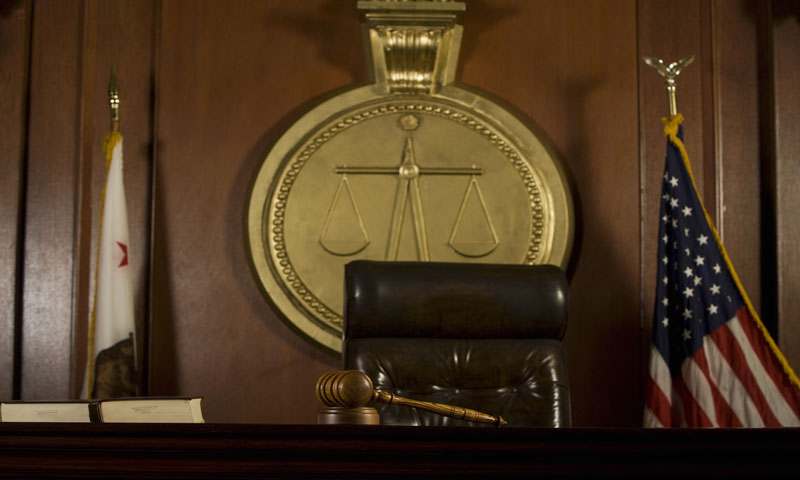
Assuming that you are interested in private practice after your government service or clerkship, what things can you do to maximize the value of such experiences in preparing for private practice?
See To Clerk or Not to Clerk
Search Judicial Clerkships on LawCrossing
Begin with the recognition that most law firms view government service and clerkships as quite valuable. Indeed, most law firms give full credit for years in government service or a clerkship, as equivalent to years you might have spent as an associate in the firm. Some firms, moreover, pay bonuses (especially to clerks) for signing on to start a private practice career at one of those firms.
VALUABLE SKILLS
Thus, the question is not really whether government service and clerkships are perceived as valuable; they are. But there are things about government service and clerkships that can provide particularly valuable skills and experiences that you should (if possible) seek to make part of your clerkship or government service. Here are a few suggestions:
Look for experiences that cannot be duplicated in private practice. But for service in a prosecutor's office, for example, you would almost certainly never see how a grand jury works. But for government service, you would probably also not see how an agency deliberates, or learn the informal rules that can affect how agency staff choose to proceed with their cases. When opportunities present themselves in government service to see the inner workings of the system, take those opportunities, even if the work is not necessarily glamorous.
Similarly, one of the principal advantages in a clerkship is the opportunity to see how a judge makes decisions. Whenever possible, ask the judge for his or her views on the important factors in the case, the quality of the advocacy, and the way that the judge makes credibility determinations. Learning to "think like a judge" will almost certainly make you a better advocate if and when you are standing before a judge in private practice.
Spend time thinking, moreover, about the various styles of advocacy and lawyering that you observe. Although it is not possible (or desirable) to copy another lawyer's style, it is possible to observe what consistently works, and what consistently fails, in appearances before your judge or encounters with your agency. Note also the things that really irritate you about some lawyers; strive to eliminate those irritating habits from your own practice once you jump to a private firm.
As part of your clerkship or government service, try also to gauge your reactions to some of the areas of law that you may encounter in private practice. Although clerkships or government service may not be perfect sources of information for making career choices, they can provide you with much more practical experience with the rhythms and styles of different areas of law than you could get from reading cases in law school. Embrace the diversity that can come in a judge's docket, and ask yourself which kinds of cases you like more than others, and why.
Also, in government service, many agencies have rotation programs, which can permit you to perform in various roles. Use these opportunities to find out more about your own responses to various parts of the practice of law. Knowing more about what interests and energizes you may help you to make appropriate, sustainable choices for your career in private practice.
Take advantage of the fact that many judicial chambers, and many agencies, provide tremendous opportunities for the exercise of responsibility at a very early stage in your career. Do not shrink from the challenging "big case." Mastering such problems will give you confidence to master other challenges, throughout your career.
Participate in any training offered through the clerkship or government service. Gather the manuals and handbooks that are standard for agency or courthouse staff. Tour the facilities. Get to know the staff members, who will often remain after you have left. In short, master not only your own job, but also the details of the operation of the institution with which you are associated.
KEEP IN TOUCH
At the conclusion of your tenure, make sure to take steps to keep in touch with the people you have met. Often, former clerks and government employees form loose associations of colleagues who maintain contacts throughout their careers. Many judges and agencies, moreover, conduct periodic reunions and other functions where these contacts can be nurtured. These contacts can bring advice, support and introductions, which can be of great benefit in private practice.
When you get to a firm, take steps to advertise your clerkship or government experience. For example, when inquiries circulate through the firm (as they often do, both formally and informally) about the practices and predilections of an agency, court or judge that you may know, speak up. Even if you cannot contribute a great deal on the merits of the legal issue, your insight and awareness of the personalities and procedures involved may be of great value. Responding to such inquiries, and looking for other ways to share your clerkship or government experiences, moreover, can help to knit you into the fabric of the firm, allowing you to make an immediate, noticeable contribution.
- See Law Schools That Send the Most Attorneys to United States Supreme Court Clerkships for more information about getting a clerkship in the US Supreme Court.
Continue to study, and dedicate yourself to supporting, the institution with which you are affiliated. Studying the history of a court, or an agency, and the biographies of the judges and agency leaders, may give you perspective and pride about your participation in the institution. Contribute also, if you can, to efforts to improve the functioning of the institution. The sense of "doing good," the sense of personal growth and accomplishment, and the sense of being part of a noble tradition in the law, may be some of the most important reasons why many new lawyers choose clerkships or government service as part of their entry into the profession.
About Harrison Barnes
No legal recruiter in the United States has placed more attorneys at top law firms across every practice area than Harrison Barnes. His unmatched expertise, industry connections, and proven placement strategies have made him the most influential legal career advisor for attorneys seeking success in Big Law, elite boutiques, mid-sized firms, small firms, firms in the largest and smallest markets, and in over 350 separate practice areas.
A Reach Unlike Any Other Legal Recruiter
Most legal recruiters focus only on placing attorneys in large markets or specific practice areas, but Harrison places attorneys at all levels, in all practice areas, and in all locations-from the most prestigious firms in New York, Los Angeles, and Washington, D.C., to small and mid-sized firms in rural markets. Every week, he successfully places attorneys not only in high-demand practice areas like corporate and litigation but also in niche and less commonly recruited areas such as:
- Immigration Law
- Workers Compensation
- Insurance
- Family Law
- Trust and Estate
- Municipal law
- And many more...
This breadth of placements is unheard of in the legal recruiting industry and is a testament to his extraordinary ability to connect attorneys with the right firms, regardless of market size or practice area.
Proven Success at All Levels
With over 25 years of experience, Harrison has successfully placed attorneys at over 1,000 law firms, including:
- Top Am Law 100 firms such including Sullivan and Cromwell, and almost every AmLaw 100 and AmLaw 200 law firm.
- Elite boutique firms with specialized practices
- Mid-sized firms looking to expand their practice areas
- Growing firms in small and rural markets
He has also placed hundreds of law firm partners and has worked on firm and practice area mergers, helping law firms strategically grow their teams.
Unmatched Commitment to Attorney Success - The Story of BCG Attorney Search
Harrison Barnes is not just the most effective legal recruiter in the country, he is also the founder of BCG Attorney Search, a recruiting powerhouse that has helped thousands of attorneys transform their careers. His vision for BCG goes beyond just job placement; it is built on a mission to provide attorneys with opportunities they would never have access to otherwise. Unlike traditional recruiting firms, BCG Attorney Search operates as a career partner, not just a placement service. The firm's unparalleled resources, including a team of over 150 employees, enable it to offer customized job searches, direct outreach to firms, and market intelligence that no other legal recruiting service provides. Attorneys working with Harrison and BCG gain access to hidden opportunities, real-time insights on firm hiring trends, and guidance from a team that truly understands the legal market. You can read more about how BCG Attorney Search revolutionizes legal recruiting here: The Story of BCG Attorney Search and What We Do for You.
The Most Trusted Career Advisor for Attorneys
Harrison's legal career insights are the most widely followed in the profession.
- His articles on BCG Search alone are read by over 150,000 attorneys per month, making his guidance the most sought-after in the legal field. Read his latest insights here.
- He has conducted hundreds of hours of career development webinars, available here: Harrison Barnes Webinar Replays.
- His placement success is unmatched-see examples here: Harrison Barnes' Attorney Placements.
- He has created numerous comprehensive career development courses, including BigLaw Breakthrough, designed to help attorneys land positions at elite law firms.
Submit Your Resume to Work with Harrison Barnes
If you are serious about advancing your legal career and want access to the most sought-after law firm opportunities, Harrison Barnes is the most powerful recruiter to have on your side.
Submit your resume today to start working with him: Submit Resume Here
With an unmatched track record of success, a vast team of over 150 dedicated employees, and a reach into every market and practice area, Harrison Barnes is the recruiter who makes career transformations happen and has the talent and resources behind him to make this happen.
A Relentless Commitment to Attorney Success
Unlike most recruiters who work with only a narrow subset of attorneys, Harrison Barnes works with lawyers at all stages of their careers, from junior associates to senior partners, in every practice area imaginable. His placements are not limited to only those with "elite" credentials-he has helped thousands of attorneys, including those who thought it was impossible to move firms, find their next great opportunity.
Harrison's work is backed by a team of over 150 professionals who work around the clock to uncover hidden job opportunities at law firms across the country. His team:
- Finds and creates job openings that aren't publicly listed, giving attorneys access to exclusive opportunities.
- Works closely with candidates to ensure their resumes and applications stand out.
- Provides ongoing guidance and career coaching to help attorneys navigate interviews, negotiations, and transitions successfully.
This level of dedicated support is unmatched in the legal recruiting industry.
A Legal Recruiter Who Changes Lives
Harrison believes that every attorney-no matter their background, law school, or previous experience-has the potential to find success in the right law firm environment. Many attorneys come to him feeling stuck in their careers, underpaid, or unsure of their next steps. Through his unique ability to identify the right opportunities, he helps attorneys transform their careers in ways they never thought possible.
He has worked with:
- Attorneys making below-market salaries who went on to double or triple their earnings at new firms.
- Senior attorneys who believed they were "too experienced" to make a move and found better roles with firms eager for their expertise.
- Attorneys in small or remote markets who assumed they had no options-only to be placed at strong firms they never knew existed.
- Partners looking for a better platform or more autonomy who successfully transitioned to firms where they could grow their practice.
For attorneys who think their options are limited, Harrison Barnes has proven time and time again that opportunities exist-often in places they never expected.
Submit Your Resume Today - Start Your Career Transformation
If you want to explore new career opportunities, Harrison Barnes and BCG Attorney Search are your best resources. Whether you are looking for a BigLaw position, a boutique firm, or a move to a better work environment, Harrison's expertise will help you take control of your future.
Submit Your Resume Here to get started with Harrison Barnes today.
Harrison's reach, experience, and proven results make him the best legal recruiter in the industry. Don't settle for an average recruiter-work with the one who has changed the careers of thousands of attorneys and can do the same for you.
About BCG Attorney Search
BCG Attorney Search matches attorneys and law firms with unparalleled expertise and drive, while achieving results. Known globally for its success in locating and placing attorneys in law firms of all sizes, BCG Attorney Search has placed thousands of attorneys in law firms in thousands of different law firms around the country. Unlike other legal placement firms, BCG Attorney Search brings massive resources of over 150 employees to its placement efforts locating positions and opportunities its competitors simply cannot. Every legal recruiter at BCG Attorney Search is a former successful attorney who attended a top law school, worked in top law firms and brought massive drive and commitment to their work. BCG Attorney Search legal recruiters take your legal career seriously and understand attorneys. For more information, please visit www.BCGSearch.com.
Harrison Barnes does a weekly free webinar with live Q&A for attorneys and law students each Wednesday at 10:00 am PST. You can attend anonymously and ask questions about your career, this article, or any other legal career-related topics. You can sign up for the weekly webinar here: Register on Zoom
Harrison also does a weekly free webinar with live Q&A for law firms, companies, and others who hire attorneys each Wednesday at 10:00 am PST. You can sign up for the weekly webinar here: Register on Zoom
You can browse a list of past webinars here: Webinar Replays
You can also listen to Harrison Barnes Podcasts here: Attorney Career Advice Podcasts
You can also read Harrison Barnes' articles and books here: Harrison's Perspectives
Harrison Barnes is the legal profession's mentor and may be the only person in your legal career who will tell you why you are not reaching your full potential and what you really need to do to grow as an attorney--regardless of how much it hurts. If you prefer truth to stagnation, growth to comfort, and actionable ideas instead of fluffy concepts, you and Harrison will get along just fine. If, however, you want to stay where you are, talk about your past successes, and feel comfortable, Harrison is not for you.
Truly great mentors are like parents, doctors, therapists, spiritual figures, and others because in order to help you they need to expose you to pain and expose your weaknesses. But suppose you act on the advice and pain created by a mentor. In that case, you will become better: a better attorney, better employees, a better boss, know where you are going, and appreciate where you have been--you will hopefully also become a happier and better person. As you learn from Harrison, he hopes he will become your mentor.
To read more career and life advice articles visit Harrison's personal blog.






